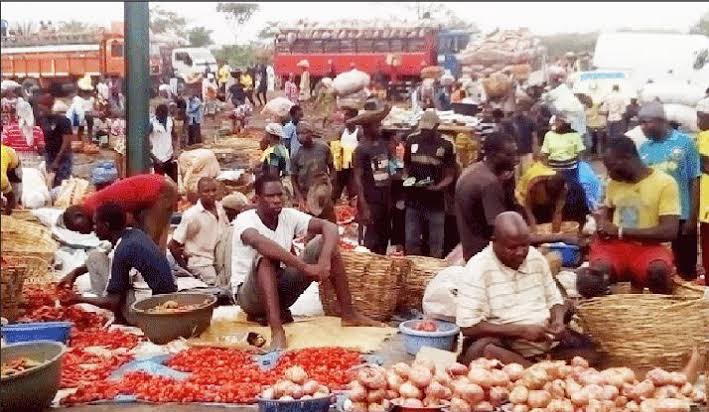For airlines, these are not the best of times as prices of diesels have gone up astronomically, in turn spurning an unprecedented skyrocketing in airfares, making many Nigerians to be caught in catch 22 situation. For a long time road transportation has not been safe as a result of growing insecurity on our high ways coupled with poor state of roads in the country.
The development which has affected many businesses, including, hotels, hospitals, and manufacturing companies, may not be far from rallying oil prices in the international market as a result of the ongoing war between Russia and Ukraine. The price of crude oil has spiked from about $70 per barrel in January to almost $120,
which has led to higher diesel prices locally, taking diesel price to N650 a litre and Jet A-1 fuel or aviation fuel to over N700 per litre from N220 in January.
Dr. Amos Adesiyun, an oil and gas expert told BusinessHallmark that ” part of the challenge is that generated power supply has proved insufficient for local demand.”
Nigerians across board, including federal law makers are piqued, and have criticised the sudden spike in the prices of airlines tickets as most domestic airlines pegged their minimum fare at N50,000. Before the development, the economy class fares bordered between N23,300 and N48,000, although fare itched up to N70,000 during the last festive season.
In the past weeks, the prices of air tickets of major companies, such as Airpeace, Ibom Air, Max Air, Aero contractors, Dana, Azman air among others, rose to a maximum of N50,000. Strangely enough, passengers may no longer receive discounts even if they book weeks ahead as it used to happen.
The minimum ticket price for even a three-week booking on Air Peace, Ibom air, Max Air, Azman air and others has been pegged at N50,000 flat rate, about 115 per cent increase from N23,300 minimum rate. Air travel in the country has witnessed increased patronage in recent years with rising insecurity that has seen many roads taken over by kidnappers.
High road transport fares have also pushed more people to take to the skies, resulting in part to poor services as airlines struggle to meet demand.
Last week, the Airline Operators of Nigeria in a statement condemned attacks on airline staff and facilities by passengers at the various airports over flight delays or cancellations.
The association also fumed over the high cost of jet fuel, foreign exchange scarcity, inflation, increase in ground handling charges as well as cost of buying and importation of spare parts.
They said aviation fuel has risen from N190 per litre to N410 in Lagos, N422 in Abuja and Port Harcourt, and N429 in Kano. The price is now almost N70.
Dr.Olufemi Omoyele, director of Entrepreneurship at Redeemers University said he had planned to travel by air to Port Harcourt, but was surprised when he was confronted with N50,000 as air ticket.
“My brother, how many Nigerians can afford this at this period, yet going by road is like a jump in the dark because of growing Insecurity.”
The Senate Committee on Upstream and Midstream have met with the Group managing director of NNPC on the rising price of diesel and its collateral damage which has led to rising airlines fares, and other economic distress.
Also feeling the pressure being mounted on NNPC, the Group Managing Director of the Nigerian National Petroleum Company (NNPC) Limited, Mr. Mele Kyari, Thursday assured Nigerians that the company would work with relevant authorities to ensure that the present crisis in the aviation sector was resolved.
That was as Director General of Nigeria Civil Aviation Authority (NCAA), Capt. Musa Shuaibu Nuhu, warned that the aviation industry might soon be shutdown, saying with the current jet fuel scarcity, it is not safe to fly anymore. Kyari gave the assurance while addressing the leadership of the House of Representatives, who were investigating the sudden scarcity and high cost of aviation fuel.
At the meeting well attended by members of the House Committees on Petroleum Downstream and Upstream, Jet-A1 marketers, and airline operators, the NNPC GMD regretted the late intervention, saying all the supply data showed there was sufficient Aviation Turbine Kerosene (ATK) in the country.
Given the current situation, Kyari advised airline operators to have the right commercial arrangement with their support petroleum products, particularly ATK.
Kyari said, Why we didnt act was that all the supply data we have showed sufficient ATK in the country. This means that it may be in the wrong hands. Theres frenzy in the market today, no one knows what the price will be tomorrow.
Thats still not an excuse for escalation of prices, we will work with the relevant authority to ensure that if theres any such thing, we will deal with it jointly as an industry. We will work together to ensure that this is resolved.
Addressing the demand by airline operators and lawmakers that the fuel price should be reduced to at least N200 per litre, Kyari said it was not feasible, as they had no control over it. He said the price was determined internationally price.
Its impossible; today the landing cost of ATK is N480, the price, we have no control on that.”
Responding to concerns raised by the lawmakers regarding the crisis in the energy sector, despite the passage of the Petroleum Industry Act (PIA), the NNPC GMD said PIA passage was not a mistake. He said the company would work with other stakeholders to ensure gaps in the sector are closed.
Whenever theres supply gap it is our role to ensure that supply gap is closed, we will work with the authority and other stakeholders to ensure that if theres any gap thats existing we fill it, Kyari added.
In his presentation, Director General, Nigeria Civil Aviation Authority (NCAA), Musa Shuaibu Nuhu, warned that they might shutdown aviation industry soon as its not safe to fly anymore.
Over the last couple of weeks we have seen a significant rise in the cost of aviation fuel. One year ago it was selling at N190 per litre and as of this afternoon it has gone for N670 per litre, what this has done is that it has increased the cost of operations.
This is a significant safety concern to us, if airlines cannot have enough financial margin to comply with all the mandatory requirement then we really have to look at, God forbid I dont want to come before this committee to explain why something happened.
Every day it increases. I wont be surprised tomorrow if it sells for N700 per litre. Considering the ticket price now, the airline industry cannot survive. The option is we shutdown, because they cannot generate enough revenues to operate safely.
Earlier, Chairman of Air Peace, Allen Onyema, who spoke on behalf of the airline operators appealed to NNPC to ensure that in the coming days, the price of aviation fuel dropped to N200 per litre.
Thats the only time we will be able to operate safely and ensure some running of the schedule operations in this country. I dont know how they will do it but they should, it will be good because even at N200 its a lot for the airlines. Not N400 or any other higher price, as we are talking now it will soon hit N700 and possibly N1,000.
What happened in the last two weeks is alarming. From a price of N190 per litre two weeks ago, the price is now N670 as at today and we dont know what it is going to happen.
The government has done so much for us in this industry with the president granting us waivers. We held a meeting and decided to shut down our operations because of the cost of operation. We are owing so much money and we dont want AMCON to come after us.
Onyema added, We cannot survive like this for another three days. We had to reduce our operations to 30 per cent because the product is not even available. So, I am surprised that the Executive Director said they have supplies to last 34 days. We are making so much sacrifice here.
I am evacuating Nigerians from Poland and I had to pay three times the usual amount and I am not asking for a refund. So, something needs to be done and done fast.
On his part, Executive Director, Nigerian Midstream and Downstream Petroleum Regulatory Authority (NMDPRA), Ogbugo Ukoha, noted the role of the agency in regulating the industry, and issuing licenses to importers of the product. Ukoha said from his records, there was enough aviation fuel to last the country for 34 days. He also said that aviation fuel was one of the petroleum products that had been fully deregulated and was, therefore, controlled by market forces, adding that the authority has issued licenses to about 28 companies to import the product into the country.
But his explanation did not go down well with Deputy Speaker, Hon. Idris Wase, and other lawmakers.
Wase questioned why there should be scarcity of the product if there was enough supply to last for 34 days, alleging that there must be a cartel working hard to sabotage the efforts of the government.
Already, the near-term inflation outlook appears increasingly unpredictable, as the petrol shortage crisis and the rising cost of diesel have added to other challenges driving up prices of essential commodities in the country.
Dr. Omoyele said inflation may go up again, “as it is expected to be triggered by the shortage of Premium Motor Spirit (PMS), as the cost of transportation, a key driver of inflation, has doubled or tripled in different cities.”
For manufacturers, the impact will be felt in rising production costs with worries about the knock-on effect on sales as consumers incomes weaken further. For the real estate sector, many estates are subscribing to distribution companies higher tariff plans in exchange for improved access to electricity, as a way to manage rising costs of operating diesel plants.
According to the Manufacturers Association of Nigeria (MAN), the rising cost of production has made its members consider the renewable energy alternative offered through the Sustainable Use of Natural Resources and Energy Finance (SUNREF), a green financing line for businesses developed by the French Development Agency (AFD).
Already, MAN and AFD have put together an $81m funding scheme for the development of renewable energy and the energy efficiency sector in Nigeria.
Last year, MAN noted that it spent 33 per cent more to generate electricity; a move considered too expensive and responsible for the non-competitiveness of locally produced goods. For many residents, insufficient power supply has made many Nigerians depend mainly on petrol and diesel for power generation.
Since February, most parts of the country have been experiencing poor power supply — worse than it used to be. President of the Lagos Chamber of Commerce and Industry (LCCI), Michael Olawale-Cole, said the escalation in the price of diesel would be a double jeopardy for manufacturers and portends a hard time that could even threaten their survival and competitiveness.
Olawale-Cole said that the prevailing prices of diesel, as well as current petrol scarcity are totally unacceptable, warning, if we are not careful the economy and Nigerians will suffer for it.
Many hospitals have had to ration their diesels causing disruptions. This has in turn affected treatment charges.
Dr. Ọmọniyi Abegunde, a consultant gynaecologist told BusinessHallmark that “here at St.Louis Hospital, we have reviewed our charges in consonant with the high cost of maintaining infrastructure and keeping the work going. Diesels price has gone up ,and we have to put on light 24 /7. Our patients , we have made them to understand our conditions.
Credit: BUSINESS HALLMARK












